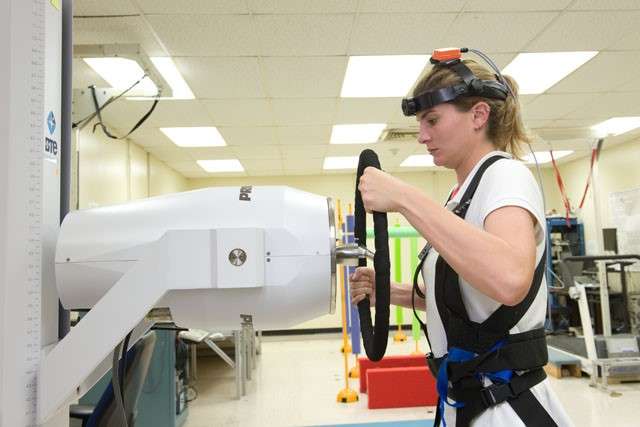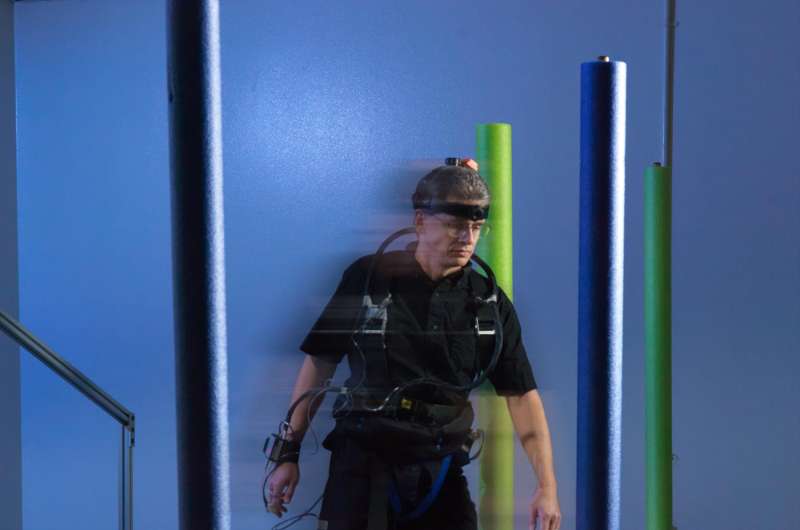NASA's one-year mission investigates how space affects astronauts' functional performance

Adapting to the microgravity environment of space changes the way your brain interprets sensory signals, decreases muscle strength and alters cardiovascular function. Astronauts will need to overcome these changes to perform critical mission tasks on a journey to Mars. Simple tasks on Earth such as exiting a vehicle becomes more crucial when stepping foot in an unfamiliar world. Maintaining balance control will be key to a successful mission.
NASA's Human Research Program wants to understand how spaceflight affects human physiological systems and functional performance to help identify the best countermeasures for astronauts in support of future deep space missions. Jacob Bloomberg, Ph.D., senior scientist at the Johnson Space Center, is investigating functional performance and physiological systems to determine how these changes can impact astronauts.
The goal of Bloomberg's One-Year Mission Functional Task Test investigation is to connect changes in physiological systems like brain, cardiovascular and muscle function to functional performance like obstacle avoidance during walking, ladder climbing and hatch opening. Astronauts are tested before spaceflight and after their return to Earth. Understanding how these changes occur leads to the development of countermeasures.
When Bloomberg compared the One-Year Mission preliminary results to six-month data, he found similar findings. Tasks that challenged postural stability, or balance control systems (i.e. fall recovery, obstacle avoidance during walking, carrying objects) changed the most as a result of spaceflight. Tasks with reduced requirements for postural stability (i.e. manual manipulation of objects and tool use) showed little reduction in performance. These results from the One-Year Mission point to the importance of finding a solution for post-flight balance disturbances and subsequent impaired functional performance.

Spaceflight may change the way the brain, heart and muscles operate together. It will be important to understand how to counteract these changes to enable astronauts to complete critical mission tasks. As NASA explores other worlds, it will be a true balancing act.
Provided by NASA





















